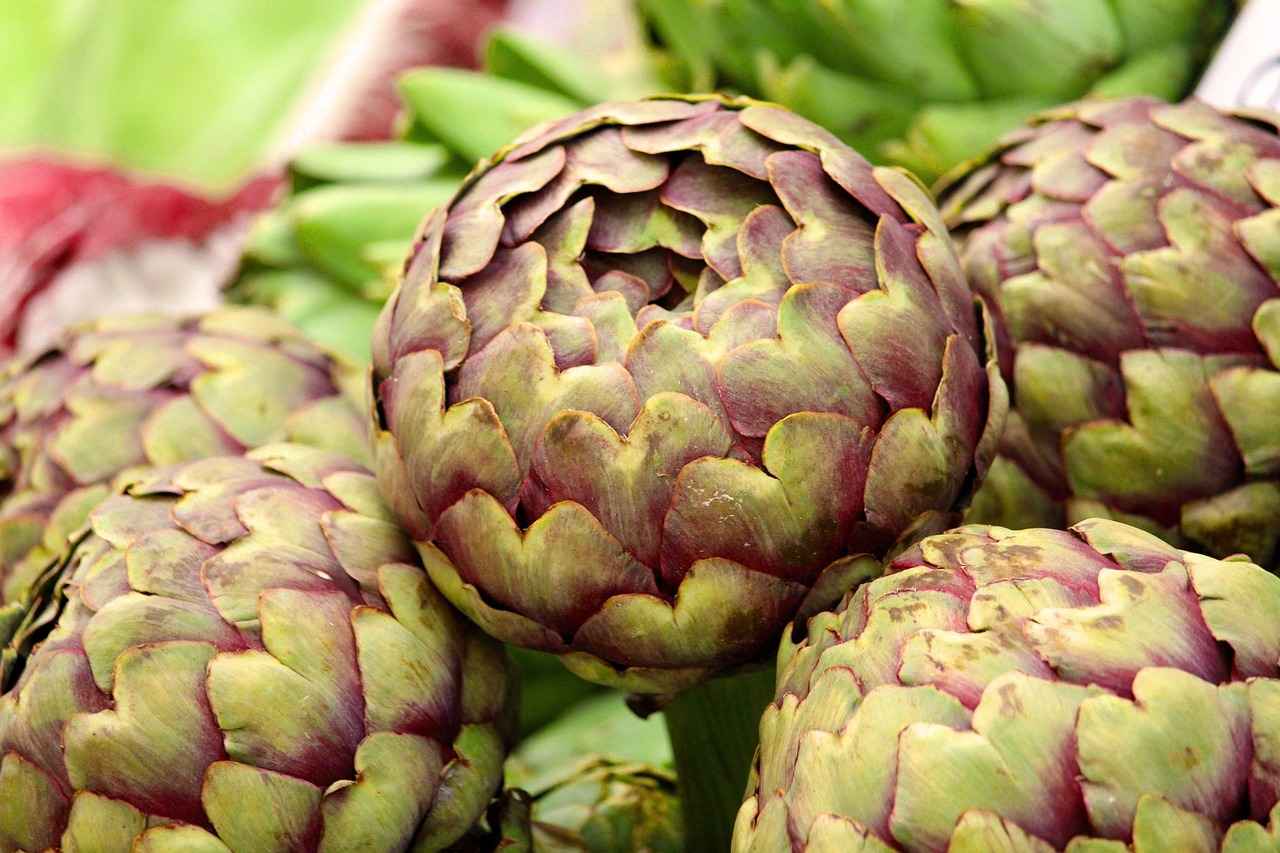This article explores the numerous benefits of artichoke extract, particularly its significant role in lowering cholesterol levels. Supported by scientific research and expert insights, we will delve into how this natural supplement can contribute to heart health.
What is Artichoke Extract?
Artichoke extract is derived from the leaves of the artichoke plant, known for its remarkable medicinal properties. It has gained attention for its potential health benefits, especially in managing cholesterol levels effectively.
How Does Artichoke Extract Lower Cholesterol?
The mechanisms through which artichoke extract reduces cholesterol involve various compounds that influence lipid metabolism and promote bile production, thereby enhancing cholesterol excretion from the body.
Active Compounds in Artichoke Extract
- Cynarin: This key component may help lower LDL cholesterol levels by enhancing bile production and promoting fat breakdown in the liver.
- Luteolin: An important flavonoid in artichoke extract, luteolin possesses antioxidant properties that may reduce oxidative stress and inflammation in the cardiovascular system.
Scientific Studies on Artichoke Extract
Numerous studies have investigated the effects of artichoke extract on cholesterol levels, providing compelling evidence of its efficacy and safety for long-term use in cholesterol management.
Recommended Dosage of Artichoke Extract
Determining the appropriate dosage of artichoke extract is crucial for maximizing its health benefits while minimizing potential side effects. Recommendations often vary based on individual health conditions.
General Guidelines for Dosage
Most studies suggest a dosage range of 300 to 600 mg of artichoke extract per day, typically divided into two or three doses to enhance absorption and effectiveness.
Consultation with Healthcare Providers
It is essential to consult with healthcare professionals before starting any supplement regimen, especially for individuals with existing health conditions or those taking medications.
Potential Side Effects of Artichoke Extract
While generally considered safe, artichoke extract may cause mild side effects in some individuals, including gastrointestinal discomfort and allergic reactions. Caution and moderation are advised.
Common Side Effects
- Nausea
- Diarrhea
- Abdominal pain
Who Should Avoid Artichoke Extract?
Individuals with certain health conditions, such as gallbladder disease or allergies to plants in the Asteraceae family, should avoid artichoke extract and consult a healthcare provider for alternatives.
Integrating Artichoke Extract into Your Diet
Incorporating artichoke extract into a balanced diet can enhance its cholesterol-lowering effects. This section explores various ways to include it in your daily routine.
Supplement Forms of Artichoke Extract
Artichoke extract is available in various forms, including capsules, tablets, and liquid extracts, allowing users to choose the most convenient option for their lifestyle.
Food Sources of Artichokes
In addition to supplements, consuming whole artichokes can provide health benefits. They are rich in fiber, vitamins, and minerals, contributing to overall heart health.
Conclusion: The Promise of Artichoke Extract
Artichoke extract shows significant promise as a natural remedy for lowering cholesterol. Ongoing research will likely continue to uncover its full potential and benefits for cardiovascular health.

What is Artichoke Extract?
Artichoke extract is a natural supplement that has garnered attention for its potential health benefits, particularly in the realm of cholesterol management. Extracted from the leaves of the artichoke plant (Cynara scolymus), this extract is rich in various bioactive compounds that contribute to its therapeutic properties. As a result, it has become a popular choice for individuals looking to support their cardiovascular health.
The artichoke plant, native to the Mediterranean region, has been used for centuries in traditional medicine. Its leaves are known to contain a range of beneficial compounds, including cynarin and luteolin, which play a critical role in promoting heart health. By understanding how these compounds work, we can appreciate the extract’s potential in lowering cholesterol levels and supporting overall well-being.
Artichoke extract works by enhancing the body’s natural processes for managing cholesterol. The active compounds within the extract are believed to stimulate the production of bile, which aids in the breakdown of fats and the excretion of cholesterol. This mechanism not only helps in lowering LDL cholesterol but also supports liver function, making it a valuable addition to a heart-healthy lifestyle.
- Cholesterol Management: Regular consumption of artichoke extract can lead to significant reductions in LDL cholesterol levels.
- Antioxidant Properties: The extract is rich in antioxidants, which help combat oxidative stress and inflammation.
- Digestive Health: Artichoke extract may improve digestion by promoting bile flow and supporting liver function.
Artichoke extract is available in various forms, including capsules, tablets, and liquid extracts. It is essential to choose a form that fits your lifestyle and preferences. Additionally, consulting with a healthcare provider can help determine the right dosage and ensure it aligns with your health goals.
In conclusion, artichoke extract presents a promising natural solution for those seeking to manage cholesterol levels effectively. As ongoing research continues to unveil its benefits, integrating this extract into a balanced diet can support cardiovascular health and overall wellness.

How Does Artichoke Extract Lower Cholesterol?
Understanding the Mechanisms Behind Artichoke Extract’s Cholesterol-Lowering Effects
Artichoke extract has garnered attention for its potential to lower cholesterol levels, primarily through its impact on lipid metabolism. This extract is rich in various bioactive compounds that work synergistically to promote heart health. In this section, we will explore the complex mechanisms through which artichoke extract aids in cholesterol reduction.
Impact on Lipid Metabolism
One of the primary ways artichoke extract reduces cholesterol is by influencing lipid metabolism. The extract contains active compounds, such as cynarin and luteolin, which play a crucial role in this process. These compounds enhance the liver’s ability to break down fats, leading to lower levels of low-density lipoprotein (LDL) cholesterol, commonly known as “bad” cholesterol.
Promotion of Bile Production
Artichoke extract is known to stimulate bile production in the liver. Bile acids are essential for the digestion and absorption of fats. When bile production increases, it enhances the excretion of cholesterol from the body. This mechanism not only helps in reducing cholesterol levels but also aids in maintaining a healthy digestive system.
Enhanced Cholesterol Excretion
By promoting the excretion of cholesterol, artichoke extract helps to maintain optimal cholesterol levels. The compounds in the extract facilitate the conversion of cholesterol into bile acids, which are then eliminated from the body. This process is vital for preventing cholesterol buildup, thereby reducing the risk of cardiovascular diseases.
Scientific Support
Numerous studies have validated the cholesterol-lowering effects of artichoke extract. Research indicates that regular consumption can lead to significant reductions in total cholesterol and LDL cholesterol levels. These findings underscore the potential of artichoke extract as a natural supplement for managing cholesterol.
Conclusion
The mechanisms through which artichoke extract reduces cholesterol are multifaceted, involving enhanced lipid metabolism, increased bile production, and improved cholesterol excretion. As research continues to evolve, artichoke extract remains a promising natural remedy for individuals seeking to manage their cholesterol levels effectively.
Active Compounds in Artichoke Extract
play a crucial role in its health benefits, particularly in managing cholesterol levels and supporting cardiovascular health. Among the various compounds present in artichoke extract, two of the most significant are cynarin and luteolin.
Cynarin is a polyphenolic compound that has garnered attention for its ability to enhance bile production in the liver. This process is vital for the digestion and absorption of fats. By increasing bile flow, cynarin helps in the breakdown of dietary fats, which can lead to a reduction in LDL cholesterol levels, commonly referred to as “bad” cholesterol. Research suggests that cynarin may also improve overall lipid profiles, contributing to better heart health.
On the other hand, luteolin is a flavonoid known for its powerful antioxidant properties. It helps combat oxidative stress and inflammation, both of which are linked to cardiovascular diseases. By reducing inflammation in the blood vessels, luteolin may assist in maintaining healthy blood circulation, thereby promoting overall heart health. Additionally, luteolin has been studied for its potential to lower cholesterol levels, further supporting the cardiovascular system.
| Active Compound | Function | Health Benefits |
|---|---|---|
| Cynarin | Enhances bile production | Reduces LDL cholesterol, improves lipid profiles |
| Luteolin | Antioxidant activity | Reduces oxidative stress and inflammation |
In summary, the active compounds in artichoke extract, particularly cynarin and luteolin, contribute significantly to its cholesterol-lowering effects and overall cardiovascular health. Incorporating artichoke extract into your diet can be a beneficial step towards maintaining a healthy heart.
Cynarin’s Role in Cholesterol Management
Cynarin is a remarkable compound found in artichoke extract, gaining attention for its potential role in managing cholesterol levels. This article explores the significance of cynarin in cholesterol management, detailing its mechanisms and benefits.
Artichoke extract, derived from the leaves of the artichoke plant, is rich in various bioactive compounds. Among these, cynarin stands out due to its ability to influence lipid metabolism. Research suggests that cynarin may help lower LDL cholesterol levels, often referred to as “bad cholesterol,” by enhancing bile production in the liver.
- Bile Production: Cynarin stimulates the liver to produce more bile, which is essential for the digestion and absorption of fats. This increased bile production aids in the breakdown of fats, facilitating their excretion from the body.
- Fat Breakdown: By promoting the breakdown of fats in the liver, cynarin assists in reducing the overall levels of cholesterol in the bloodstream, contributing to better cardiovascular health.
Scientific studies have provided evidence supporting the cholesterol-lowering effects of cynarin. For example, a study published in a reputable journal indicated that individuals who consumed artichoke extract experienced a significant reduction in their LDL cholesterol levels.
Moreover, the inclusion of cynarin in a regular diet may offer additional benefits, such as improved liver function and enhanced digestive health. It is important to note that while cynarin is beneficial, it should be part of a holistic approach to health, including a balanced diet and regular exercise.
In conclusion, cynarin plays a crucial role in cholesterol management by enhancing bile production and promoting fat breakdown in the liver. As research continues to evolve, it is clear that cynarin holds promise as a natural aid in maintaining healthy cholesterol levels.
Luteolin and Its Health Benefits
Luteolin is a remarkable flavonoid found in artichoke extract, known for its potent antioxidant properties. This compound plays a vital role in promoting cardiovascular health by combating oxidative stress and reducing inflammation within the cardiovascular system.
Oxidative stress occurs when there is an imbalance between free radicals and antioxidants in the body, leading to cellular damage. Luteolin helps to neutralize these free radicals, thereby protecting the cells from damage and potentially lowering the risk of chronic diseases, including heart disease. Its anti-inflammatory properties further contribute to cardiovascular health by reducing inflammation in blood vessels, which can improve circulation and overall heart function.
Research indicates that luteolin may also assist in regulating cholesterol levels. By influencing lipid metabolism, luteolin can help maintain a healthy balance of LDL (bad cholesterol) and HDL (good cholesterol) in the bloodstream. This regulation is crucial for preventing the buildup of plaque in the arteries, a condition that can lead to serious cardiovascular issues.
In addition to its cardiovascular benefits, luteolin has been studied for its potential effects on other health conditions. For instance, its anti-inflammatory and antioxidant properties may be beneficial in managing conditions such as diabetes and cancer. The flavonoid has shown promise in various studies, suggesting it could play a role in reducing the risk or severity of these diseases.
Incorporating luteolin-rich foods, such as artichokes, into your diet can be an effective way to harness its health benefits. As ongoing research continues to explore the full range of luteolin’s effects, it is clear that this flavonoid holds significant potential for enhancing health and well-being.
Scientific Studies on Artichoke Extract
Artichoke extract has garnered significant attention in the realm of nutritional science, particularly for its potential cholesterol-lowering properties. A multitude of scientific studies have explored its effects on cholesterol levels, demonstrating both efficacy and safety for long-term use in managing cholesterol.
One pivotal study published in the Journal of Nutrition investigated the impact of artichoke extract on lipid profiles among participants with elevated cholesterol levels. The results indicated a notable reduction in LDL cholesterol and an increase in HDL cholesterol, suggesting that artichoke extract may contribute to a healthier lipid balance.
Another research effort conducted by the European Journal of Clinical Nutrition focused on the extract’s active compounds, particularly cynarin and luteolin. These compounds were found to enhance bile production, which aids in the excretion of cholesterol from the body. This mechanism is crucial as it supports the body’s natural processes for maintaining cholesterol levels.
Furthermore, a meta-analysis comprising various studies highlighted the overall safety profile of artichoke extract. The findings revealed that adverse effects were minimal and typically mild, such as gastrointestinal discomfort. This reinforces the notion that artichoke extract is a viable option for individuals seeking natural methods to manage their cholesterol levels.
In conclusion, the body of research surrounding artichoke extract underscores its potential as a natural supplement for cholesterol management. As ongoing studies continue to explore its benefits, individuals interested in incorporating this extract into their health regimen are encouraged to consult healthcare professionals to tailor their approach effectively.

Recommended Dosage of Artichoke Extract
Determining the appropriate dosage of artichoke extract is essential for maximizing its health benefits while minimizing potential side effects. The recommendations can vary significantly based on individual health conditions, lifestyle, and specific health goals.
Understanding Dosage Variability
Different factors influence the recommended dosage of artichoke extract, including:
- Age: Younger individuals may metabolize substances differently than older adults.
- Health Status: Those with existing health conditions may require tailored dosages.
- Medication Interactions: Individuals on certain medications should be cautious, as artichoke extract may interact with them.
General Guidelines for Dosage
Most scientific studies suggest a dosage range of 300 to 600 mg of artichoke extract per day. This dosage is typically divided into two or three smaller doses taken throughout the day to enhance absorption and effectiveness. For optimal results, it is advised to take the extract with meals.
Consultation with Healthcare Providers
Before starting any supplementation, especially with artichoke extract, it is crucial to consult with healthcare professionals. This is particularly important for individuals with:
- Chronic Diseases: Those with liver or kidney issues should seek advice.
- Pregnancy or Nursing: Pregnant or nursing women should be cautious and consult a doctor.
- Allergies: Individuals with allergies to plants in the Asteraceae family should avoid artichoke extract.
Conclusion
In summary, while artichoke extract can offer significant health benefits, especially in managing cholesterol levels, understanding the right dosage is key. Always prioritize safety and efficacy by consulting with healthcare providers to tailor the dosage to individual needs.
General Guidelines for Dosage
When considering the use of artichoke extract as a supplement for managing cholesterol levels, it is crucial to adhere to recommended dosage guidelines to ensure both efficacy and safety. Most scientific studies advocate a dosage range of 300 to 600 mg of artichoke extract per day. This range is typically divided into two or three doses throughout the day. Such division not only enhances the absorption of the active compounds but also maximizes their effectiveness in lowering cholesterol levels.
In practice, a common regimen might involve taking 100 to 300 mg of artichoke extract with meals. This approach allows the body to utilize the extract more efficiently, as the presence of food can aid in the absorption of its beneficial components.
It’s important to note that individual responses to artichoke extract can vary based on factors such as age, weight, and overall health. Therefore, some individuals may find that they respond better to lower or higher dosages within the recommended range. Monitoring one’s own body’s response is essential for optimizing the benefits while minimizing any potential side effects.
Additionally, individuals who are taking other medications or have pre-existing health conditions should seek advice from a healthcare professional before starting any new supplement regimen. This precaution is vital to avoid any adverse interactions or complications that may arise from combining artichoke extract with other treatments.
In summary, adhering to a daily dosage of 300 to 600 mg of artichoke extract, divided into two or three doses, is generally recommended for those looking to capitalize on its cholesterol-lowering properties. Always consult with a healthcare provider for personalized advice tailored to your specific health needs.
Consultation with Healthcare Providers
When considering the introduction of any new supplement into your health regimen, it is crucial to seek guidance from healthcare professionals. This is particularly important for individuals who have existing health conditions or are currently taking medications. The interaction between supplements and medications can be complex, and only a qualified healthcare provider can offer personalized advice based on your unique health profile.
Many people may overlook the potential risks associated with self-prescribing supplements, thinking that natural products are always safe. However, this assumption can be misleading. For example, certain supplements can interfere with the effectiveness of prescribed medications or exacerbate existing health issues. Therefore, a thorough consultation can help identify any potential contradictions or side effects that may arise from combining supplements with other treatments.
Moreover, healthcare providers can assist in determining the appropriate dosage and form of the supplement that would be most beneficial for your specific needs. They can also monitor your progress and make necessary adjustments to ensure optimal health outcomes.
In addition to understanding the risks, consulting with healthcare professionals allows for a more informed approach to health and wellness. They can provide evidence-based recommendations and help you navigate the vast array of supplements available on the market. This is especially important in the case of supplements that claim to offer significant health benefits, such as artichoke extract for cholesterol management.
In summary, always prioritize your health by engaging with healthcare professionals before starting any supplement regimen. This proactive approach can safeguard your well-being and ensure that you are making informed choices tailored to your health needs.

Potential Side Effects of Artichoke Extract
While artichoke extract is widely regarded as a beneficial supplement for managing cholesterol levels, it is important to acknowledge that it may lead to some mild side effects in certain individuals. Understanding these potential reactions can help users make informed decisions about their health.
| Side Effect | Description |
|---|---|
| Gastrointestinal Discomfort | Some users may experience symptoms such as nausea, diarrhea, or abdominal pain, particularly if taken in high doses. |
| Allergic Reactions | Individuals with allergies to plants in the Asteraceae family, which includes ragweed and daisies, may face allergic reactions. |
| Headaches | Occasionally, users may report headaches, possibly as a reaction to the active compounds in the extract. |
It is advisable for individuals to start with a lower dosage to gauge their body’s response before gradually increasing it. This approach can help mitigate potential side effects.
Who Should Exercise Caution?
- People with gallbladder disease should avoid artichoke extract, as it may stimulate bile production.
- Those with known allergies to Asteraceae family plants should consult a healthcare provider before use.
- Pregnant or breastfeeding women should also seek medical advice before starting any new supplement.
In conclusion, while artichoke extract offers many health benefits, including its cholesterol-lowering properties, it is essential to be aware of the possible side effects. By exercising caution and consulting with healthcare professionals, individuals can safely incorporate this supplement into their health regimen.
Common Side Effects
When considering the use of artichoke extract as a supplement for managing cholesterol levels, it is crucial to be aware of potential side effects. While many individuals tolerate artichoke extract well, some may experience mild adverse reactions. Understanding these side effects can help users make informed decisions about their supplementation journey.
- Nausea: Some users report feelings of nausea after taking artichoke extract. This can vary in intensity and may be influenced by the dosage or the individual’s sensitivity to the compound.
- Diarrhea: Gastrointestinal disturbances, including diarrhea, are among the more common side effects. This can occur as the body adjusts to the extract or due to its effects on bile production.
- Abdominal Pain: Discomfort in the abdominal area is another potential side effect. This can manifest as cramping or general unease, prompting some users to reconsider their dosage or frequency of intake.
- Allergic Reactions: Although rare, some individuals may experience allergic reactions to artichoke extract, particularly those with sensitivities to plants in the Asteraceae family. Symptoms can range from mild itching to more severe reactions.
Recognizing these symptoms is vital for users as they navigate their supplementation. If any of these side effects occur, it is advisable to consult with a healthcare professional. Adjusting the dosage or switching to a different form of supplementation may alleviate discomfort.
In conclusion, while artichoke extract offers numerous health benefits, being aware of its potential side effects can enhance the overall experience for users. Listening to your body and seeking professional guidance can ensure a safe and effective supplementation journey.
Who Should Avoid Artichoke Extract?
Artichoke extract, while beneficial for many, is not suitable for everyone. Individuals with specific health conditions should exercise caution and consult a healthcare professional before incorporating this supplement into their regimen.
- Gallbladder Disease: People suffering from gallbladder issues should avoid artichoke extract, as it can stimulate bile production. This stimulation may exacerbate existing conditions, leading to discomfort or complications.
- Allergies to Asteraceae Family: Those with known allergies to plants in the Asteraceae family, which includes daisies, marigolds, and chrysanthemums, should refrain from using artichoke extract. Allergic reactions can range from mild skin irritations to severe anaphylactic responses.
- Pregnant or Nursing Women: There is limited research on the safety of artichoke extract during pregnancy or breastfeeding. Therefore, it’s advisable for women in these categories to avoid it unless cleared by a healthcare provider.
- Individuals on Certain Medications: Artichoke extract may interact with medications, particularly those that affect liver enzymes or cholesterol levels. Patients on such medications should seek professional advice before use.
Consulting with a healthcare provider is crucial for anyone considering artichoke extract, especially if they have underlying health issues or are taking other medications. This precaution helps ensure safe and effective use of the supplement while exploring alternative options for health improvement.
For those who qualify and wish to explore the benefits of artichoke extract, it can be a valuable addition to a balanced diet, promoting heart health and overall wellness.

Integrating Artichoke Extract into Your Diet
Incorporating artichoke extract into your daily diet can significantly enhance its cholesterol-lowering effects. Understanding how to effectively integrate this supplement into your routine is essential for maximizing its health benefits. Below are several practical ways to include artichoke extract in your diet.
- Supplement Forms: Artichoke extract is widely available in various forms, including capsules, tablets, and liquid extracts. Choose the form that best fits your lifestyle and preferences. Capsules and tablets are convenient for on-the-go use, while liquid extracts can be added to smoothies or juices.
- Daily Routine: To ensure consistent intake, consider taking artichoke extract at the same time each day. This could be during a meal to enhance absorption or as part of your morning routine.
- Combining with Foods: While supplements are effective, incorporating whole artichokes into your meals is an excellent way to enjoy their benefits. Artichokes can be steamed, grilled, or roasted and served as a side dish, or added to salads and pasta dishes.
- Healthy Recipes: Explore recipes that feature artichokes. For example, a Mediterranean artichoke salad with olive oil, lemon, and fresh herbs can be a delicious and healthy addition to your diet.
- Consulting with Professionals: Before starting any new supplement, including artichoke extract, it is advisable to consult with a healthcare provider or a nutritionist. They can provide personalized recommendations based on your health needs.
By strategically incorporating artichoke extract into your diet, you can take significant steps towards improving your cholesterol levels and overall heart health. Remember to combine it with a balanced diet rich in fruits, vegetables, and whole grains for optimal results.
Conclusion: The integration of artichoke extract into your daily routine offers a natural approach to managing cholesterol levels. Explore different forms and recipes to find what works best for you, and enjoy the journey to better health.
Supplement Forms of Artichoke Extract
Artichoke extract is a versatile supplement that caters to a variety of preferences and lifestyles. Available in multiple forms, it allows individuals to select the most suitable option for their health regimen. The most common forms include capsules, tablets, and liquid extracts. Each form has its unique advantages, making it easier for users to integrate this beneficial extract into their daily routine.
- Capsules: These are a popular choice due to their convenience and ease of use. Capsules are pre-measured, allowing for accurate dosing without the need for measuring spoons or additional preparation.
- Tablets: Similar to capsules, tablets offer a straightforward way to consume artichoke extract. They may dissolve more slowly, which can be beneficial for those who prefer a gradual release of the active compounds.
- Liquid Extracts: For those who have difficulty swallowing pills or prefer a more immediate absorption method, liquid extracts are an excellent alternative. They can be added to beverages or taken directly, providing flexibility in dosing.
Choosing the right form of artichoke extract often depends on personal preferences and lifestyle factors. For example, individuals who are frequently on the go may find capsules or tablets more convenient, while those who enjoy mixing supplements into their drinks may prefer liquid extracts. Regardless of the form chosen, it is important to adhere to recommended dosages to maximize the health benefits associated with artichoke extract.
In summary, the availability of artichoke extract in various forms ensures that everyone can find a suitable option that fits their health needs and lifestyle. This flexibility can play a significant role in encouraging consistent use, which is essential for experiencing the full range of benefits that artichoke extract has to offer.
Food Sources of Artichokes
Artichokes, a member of the thistle family, are not only a delicious addition to various dishes but also a powerhouse of nutrients that can significantly benefit heart health. In addition to supplements, consuming whole artichokes offers numerous health advantages. These vegetables are particularly rich in fiber, vitamins, and minerals, all of which play a crucial role in maintaining overall well-being.
Health Benefits of Whole Artichokes
- Rich in Fiber: Whole artichokes are an excellent source of dietary fiber, which aids in digestion and helps maintain healthy cholesterol levels.
- Vitamins and Minerals: They are packed with essential vitamins such as Vitamin C, which boosts the immune system, and Vitamin K, which is vital for blood clotting and bone health.
- Antioxidant Properties: Artichokes contain antioxidants like cynarin and silymarin, which help combat oxidative stress and reduce inflammation in the body.
Incorporating Artichokes into Your Diet
Incorporating whole artichokes into your meals can be both enjoyable and beneficial. Here are some ways to include them in your diet:
- Steamed or Boiled: Serve them as a side dish or add to salads for a nutritious boost.
- Artichoke Dip: Blend cooked artichokes with cheese and spices for a delicious appetizer.
- Grilled Artichokes: Marinate and grill them for a smoky flavor, perfect for summer barbecues.
Conclusion
In summary, whole artichokes are a versatile and nutrient-dense food that can contribute to overall heart health. Their high fiber content, coupled with essential vitamins and antioxidants, makes them a valuable addition to any diet. Whether enjoyed in salads, dips, or as a standalone dish, artichokes can play a significant role in promoting wellness.

Conclusion: The Promise of Artichoke Extract
Exploring the Cholesterol-Lowering Properties of Artichoke Extract
Artichoke extract has emerged as a notable natural remedy for managing cholesterol levels, garnering attention from both researchers and health enthusiasts alike. Derived from the leaves of the artichoke plant, this extract is rich in beneficial compounds that are thought to support cardiovascular health. As studies continue to unfold, the potential benefits of artichoke extract in lowering cholesterol are becoming increasingly evident.
What Makes Artichoke Extract Effective?
The effectiveness of artichoke extract in lowering cholesterol can be attributed to its unique composition. Key compounds such as cynarin and luteolin play significant roles in lipid metabolism. Cynarin, in particular, is known to enhance bile production, which aids in the excretion of cholesterol from the body. This process is crucial for managing LDL cholesterol, often referred to as “bad” cholesterol.
Scientific Evidence Supporting Artichoke Extract
Numerous scientific studies have investigated the cholesterol-lowering effects of artichoke extract. For instance, a meta-analysis published in a reputable journal indicated that participants who consumed artichoke extract experienced a significant reduction in total cholesterol and LDL levels. These findings highlight the extract’s potential as a safe and effective option for cholesterol management.
Recommended Usage and Dosage
For individuals looking to incorporate artichoke extract into their daily routine, a typical dosage ranges from 300 to 600 mg per day. It is advisable to split this dosage into two or three servings to enhance absorption. However, consulting with a healthcare provider is essential, especially for those with pre-existing health conditions.
Potential Side Effects and Precautions
While artichoke extract is generally well-tolerated, some individuals may experience mild side effects such as gastrointestinal discomfort or allergic reactions. It is crucial for users to be aware of these potential issues and to seek medical advice if they have concerns.
In summary, artichoke extract shows significant promise as a natural remedy for lowering cholesterol. With ongoing research, its full potential and benefits for cardiovascular health are likely to be further elucidated. As more people seek natural alternatives for health management, artichoke extract stands out as a compelling option worth considering.












